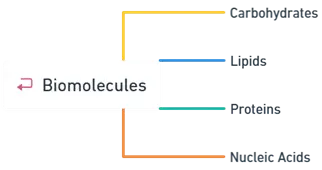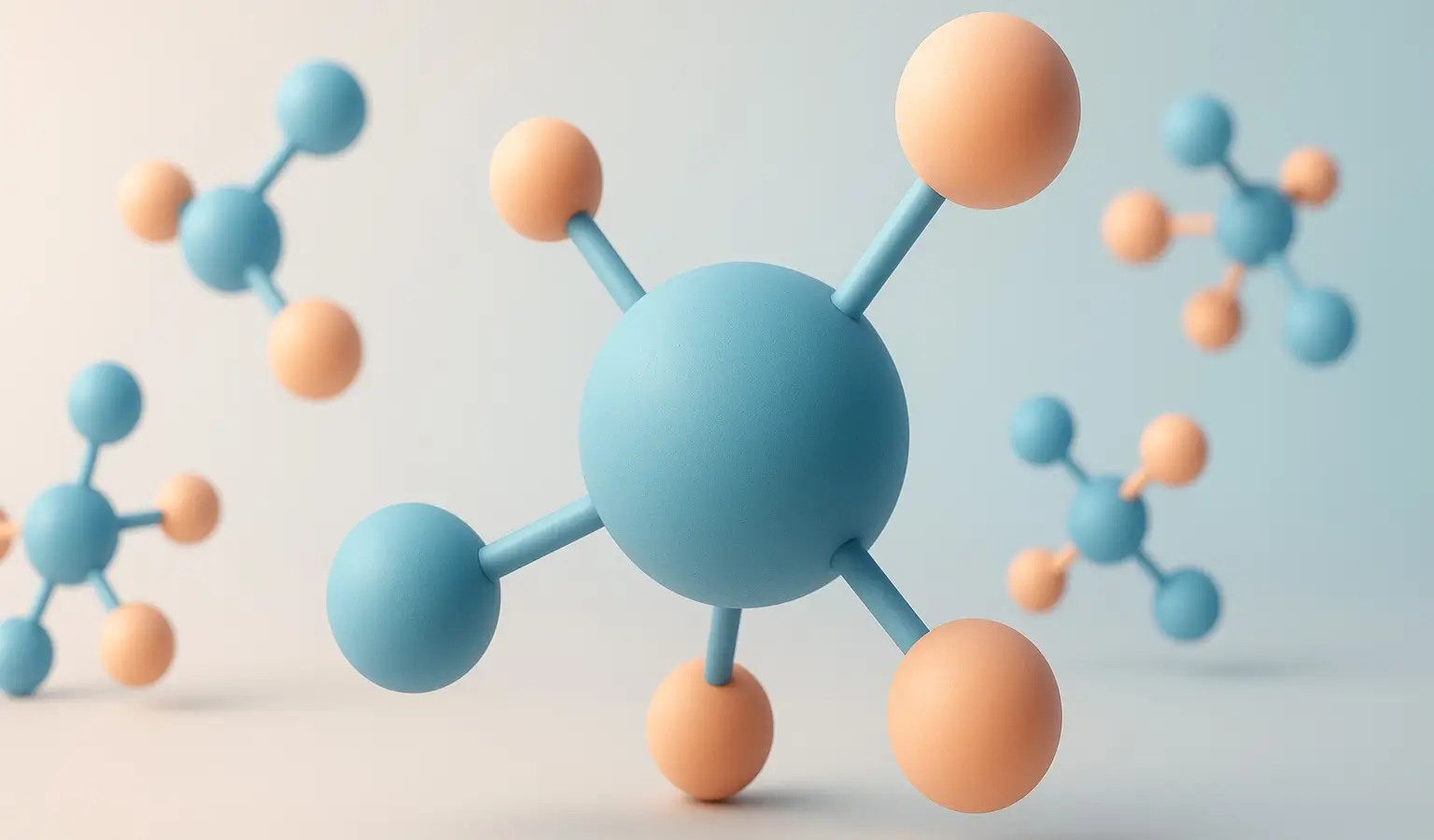- Biomolecules are organic molecules produced by living organisms, essential for the structure, function, and regulation of cells, tissues, and organs.
- They sustain biological processes and can be classified into four major categories: carbohydrates, lipids, proteins, and nucleic acids.

Carbohydrates in Biomolecules
-
Structure:
- Composed of carbon (C), hydrogen (H), and oxygen (O) in a 1:2:1
- Includes monosaccharides (simple sugars), disaccharides, and polysaccharides (complex carbohydrates).
-
Function:
- Primary energy source for cells.
- Serve as structural components (e.g., cellulose in plants, chitin in arthropods).
- Involved in cell recognition and energy storage (glycogen, starch).
Lipids in Biomolecules
-
Structure:
-
Function:
- Energy storage (more efficient than carbohydrates).
- Form cell membranes (phospholipids in the lipid bilayer).
- Serve as signaling molecules (steroid hormones like estrogen and testosterone).
- Provide insulation and organ protection.
Proteins
-
Structure:
- Polymers of amino acids linked by peptide bonds.
- Fold into complex three-dimensional shapes to perform specific functions.
-
Function:
- Catalyze biochemical reactions (enzymes).
- Provide structural support (collagen, keratin).
- Transport molecules (hemoglobin for oxygen transport).
- Facilitate cell signaling (hormones, receptors).
- Defend against pathogens (antibodies).
Nucleic Acids
-
Structure:
- Polymers of nucleotides, each consisting of a nitrogenous base, sugar, and phosphate group.
- Two main types: DNA (deoxyribonucleic acid) and RNA (ribonucleic acid).
-
Function:
- Store and transmit genetic information (DNA).
- Regulate gene expression and assist in protein synthesis (RNA).
- Some RNA molecules have catalytic functions (ribozymes).
Functions of Biomolecules in Biological Processes
- Biomolecules have essential roles across various biological processes, crucial for the survival and functioning of living organisms:
-
- Carbohydrates: Provide energy and serve as structural components.
- Lipids: Store energy, form cell membranes, and act as signaling molecules.
- Proteins: Catalyze biochemical reactions, provide structural support, transport molecules, facilitate signaling, and defend against pathogens.
- Nucleic Acids: Store and transmit genetic information, regulate gene expression, and are key to the synthesis of proteins.
Click Here to Watch the Best Pharma Videos

